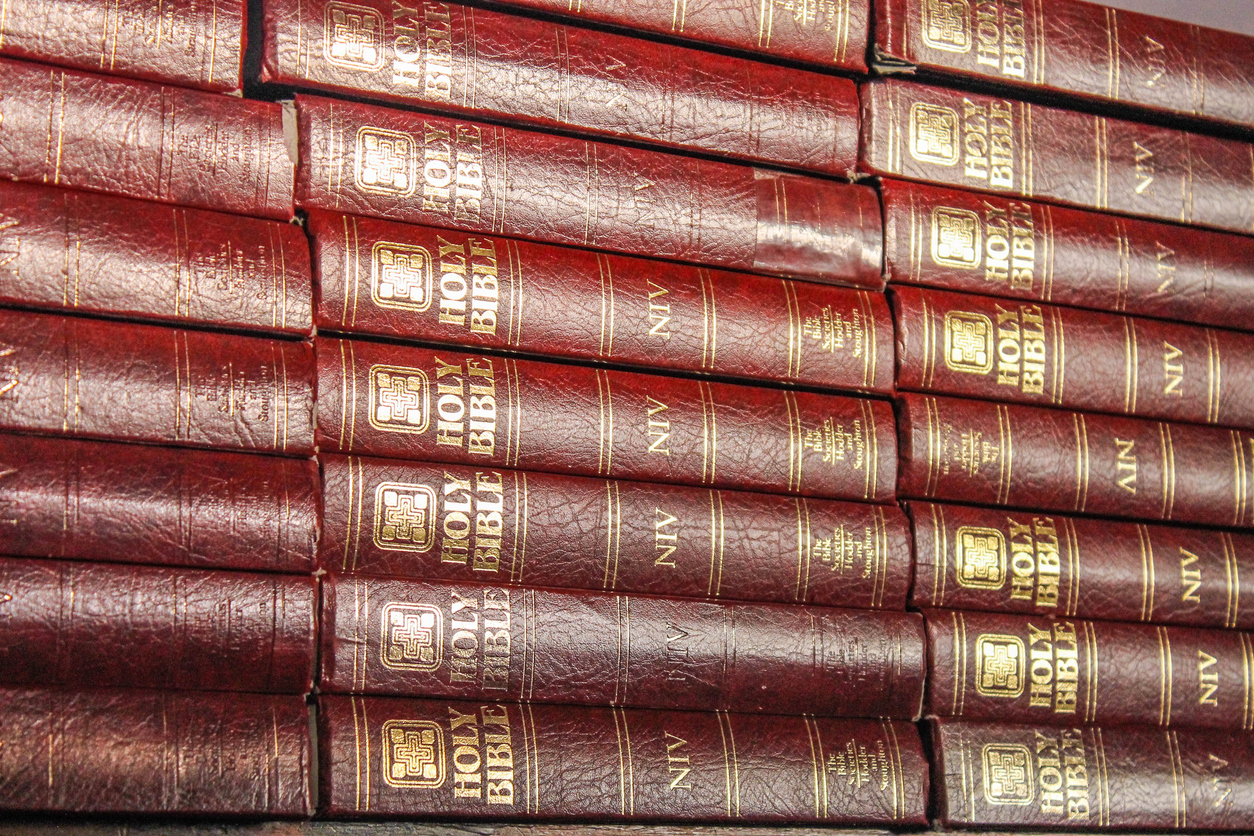Trump's next round of China tariffs could lead to a U.S. Bible shortage


A free daily email with the biggest news stories of the day – and the best features from TheWeek.com
You are now subscribed
Your newsletter sign-up was successful
The Bible is easily the best-selling book in the U.S., and religious publishing houses are warning that President Trump's next proposed round of Chinese tariffs could result in a Bible shortage, making the Good Book more expensive for American consumers and hurting Christian evangelization efforts, The Associated Press reports.
"U.S. printers moved their Bible printing facilities abroad decades ago, leaving no substantial domestic manufacturing alternatives," Mark Schoenwald, president and CEO of HarperCollins Christian Publishing, told the U.S. Trade Representative recently. He added that HarperCollins, which owns the two largest U.S. Bible publishers, believes the Trump administration "never intended to impose a 'Bible Tax' on consumers and religious organizations." Combined, HarperCollins' Zondervan and Thomas Nelson commands 38 percent of the U.S. Bible market, and they incur about 75 percent of theirs Bible manufacturing costs in China.
Overall, about half of the world's Bibles are printed in China, and "traditionally, historically books have been excluded from tariffs," Evangelical Christian Publishers Association president and CEO Stan Jantz told AP. Bible printing also doesn't address Trump's stated concerns about Chinese business practices, Tyndale House CEO Mark Taylor noted. "The printing of books does not require significant technology or know-how that is at risk of theft or appropriation by China."
The Week
Escape your echo chamber. Get the facts behind the news, plus analysis from multiple perspectives.

Sign up for The Week's Free Newsletters
From our morning news briefing to a weekly Good News Newsletter, get the best of The Week delivered directly to your inbox.
From our morning news briefing to a weekly Good News Newsletter, get the best of The Week delivered directly to your inbox.
A free daily email with the biggest news stories of the day – and the best features from TheWeek.com
Peter has worked as a news and culture writer and editor at The Week since the site's launch in 2008. He covers politics, world affairs, religion and cultural currents. His journalism career began as a copy editor at a financial newswire and has included editorial positions at The New York Times Magazine, Facts on File, and Oregon State University.
-
 6 of the world’s most accessible destinations
6 of the world’s most accessible destinationsThe Week Recommends Experience all of Berlin, Singapore and Sydney
-
 How the FCC’s ‘equal time’ rule works
How the FCC’s ‘equal time’ rule worksIn the Spotlight The law is at the heart of the Colbert-CBS conflict
-
 What is the endgame in the DHS shutdown?
What is the endgame in the DHS shutdown?Today’s Big Question Democrats want to rein in ICE’s immigration crackdown
-
 TikTok secures deal to remain in US
TikTok secures deal to remain in USSpeed Read ByteDance will form a US version of the popular video-sharing platform
-
 Unemployment rate ticks up amid fall job losses
Unemployment rate ticks up amid fall job lossesSpeed Read Data released by the Commerce Department indicates ‘one of the weakest American labor markets in years’
-
 US mints final penny after 232-year run
US mints final penny after 232-year runSpeed Read Production of the one-cent coin has ended
-
 Warner Bros. explores sale amid Paramount bids
Warner Bros. explores sale amid Paramount bidsSpeed Read The media giant, home to HBO and DC Studios, has received interest from multiple buying parties
-
 Gold tops $4K per ounce, signaling financial unease
Gold tops $4K per ounce, signaling financial uneaseSpeed Read Investors are worried about President Donald Trump’s trade war
-
 Electronic Arts to go private in record $55B deal
Electronic Arts to go private in record $55B dealspeed read The video game giant is behind ‘The Sims’ and ‘Madden NFL’
-
 New York court tosses Trump's $500M fraud fine
New York court tosses Trump's $500M fraud fineSpeed Read A divided appeals court threw out a hefty penalty against President Trump for fraudulently inflating his wealth
-
 Trump said to seek government stake in Intel
Trump said to seek government stake in IntelSpeed Read The president and Intel CEO Lip-Bu Tan reportedly discussed the proposal at a recent meeting
